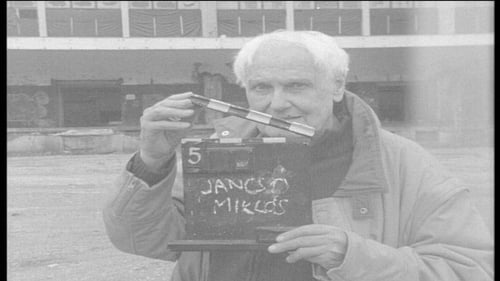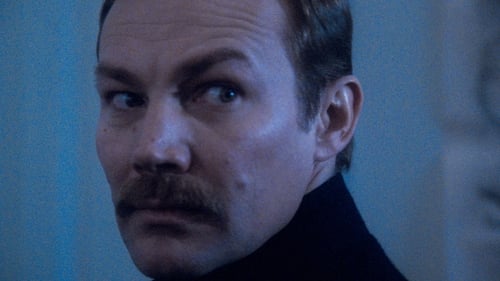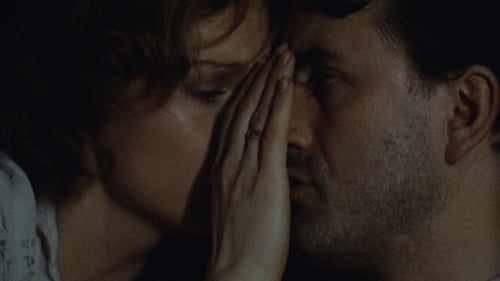Gyula Gazdag
출생 : 1947-07-19, Budapest, Hungary

Self
Reconstructions of unrealized Hungarian films in cooperation with the greatest Hungarian film directors.

Director
Filmmaker Gyula Gazdag's fascinating documentary follows Hungarian poet, playwright and activist István Eörsi on a trip to the streets of New York to visit his friend and contemporary, the iconic beat poet Allen Ginsberg. Shot just two years before Ginsberg's death, the film follows the two friends as they share poetry and laughs, wandering the streets of the Lower East Manhattan, musing about the past and contemplating the future.

Screenplay
In a border town two sons of the local commander using stolen arms take hostages of eighteen girls in a dormitory, because they want to go West by plane.

Director
In a border town two sons of the local commander using stolen arms take hostages of eighteen girls in a dormitory, because they want to go West by plane.

Writer
Shot in B&W, Gyula Gazdag's film follows the surreal and often comic quests of young Andris, an orphan searching for a father who doesn't exist, and Orban, a government clerk who's had enough of oppressive bureaucracy.

Director
Shot in B&W, Gyula Gazdag's film follows the surreal and often comic quests of young Andris, an orphan searching for a father who doesn't exist, and Orban, a government clerk who's had enough of oppressive bureaucracy.

Oberleutnant Ehrlich
레들은 선생의 추천으로 사관학교에 진학하고 쿠비니와 친해져 그의 누이 카타린과도 알게 된다. 세월이 흘러 중위가 된 레들은 주위의 인정을 받고 로덴 대령의 신임도 얻는다. 그는 사창가를 출입하거난 반정부적인 불만을 늘어놓는 동료들과는 달리 상관의 명령에 충성한다.
레들이 중령이 되었을 때, 첩보활동을 위해 제국 중심지에서 일하게 되지만, 자신의 일에만 충실할 뿐 다른 군인들에게는 눈의 가시같은 존재가 된다. 그런데 군내부의 정치 싸움에서 진 로덴 대령이 이러한 레들을 적국러시아의 첩자로 만들어 황실의 희생양으로 삼으려 한다. 이를 눈치챈 레들은 정치가들을 증오하며 자포자기하여 평생 우정을 준 쿠비니의 권총으로 자살한다.

Director
A documentary which follows a coach party of former inmates on a trip to Auschwitz.

Writer
Via the New York Times: "The Hungarian director Gyula Gazdag has transposed the middle section of Balzac's "Lost Illusions" from Paris in the mid-19th century to the Budapest of 1968... it tells of Laszlo Sardi - Balzac's Lucien Chardon - and his efforts to launch his literary career amid the snobbery and sophistication of a big city."

Director
Via the New York Times: "The Hungarian director Gyula Gazdag has transposed the middle section of Balzac's "Lost Illusions" from Paris in the mid-19th century to the Budapest of 1968... it tells of Laszlo Sardi - Balzac's Lucien Chardon - and his efforts to launch his literary career amid the snobbery and sophistication of a big city."

2차 세계대전 동안 헝가리인들의 저항은 결혼한 부부를 기관들로부터 숨겨준다. 한 여인이 저항 운동을 하는 한남자의 부인인척 역할을 하기 위해 보내지게 되는데 그녀 또한 다른 사람의 이름으로 행세하게 된다. 전시의 열악한 상황속에서 오로지 생존을 위해 구성된 삶이지만 시간이 지나며 이 고통스러운 어둠의 터널 속에서 두 사람은 서서히 서로를 사랑하게 되는데….

Director

Director
This grotesque, micro-realistic film is set in a small village at the end of the seventies. A TV-staff comes to the Petőfi Memorial House. They want to record the comic opera, The Postman of Longjumeau, by Charles Adam, a 19th century French composer.

Editor
The royal summary court sentences Sallai Imre and Fürst Sándor to death on charges of attempting to uproot the state and the social order. The film, the story of which takes place in 1932, enlarges the moment of delivering the death-sentence. Sallai, preparing for his death, envisions the people and the events that have been decisive for his life.

Editor
Mr. Dezső and Rezső are selecting the heroes for their new operetta. They represent different tastes and styles, and keep arguing about the casting of the four boys and four girls.

Screenplay
Mr. Dezső and Rezső are selecting the heroes for their new operetta. They represent different tastes and styles, and keep arguing about the casting of the four boys and four girls.

Director
Mr. Dezső and Rezső are selecting the heroes for their new operetta. They represent different tastes and styles, and keep arguing about the casting of the four boys and four girls.

Editor
Shot in 1972, this remarkable documentary was released ten years later and had its first Western film festival screenings last year. "Gyula Gazdag is an outstanding Hungarian talent who seems to specialize in getting into trouble. This film, which he made with Judit Ember, another alert and sensitive director, was banned for ten years. In it, a rural community is in financial trouble and an expert from Budapest is sent to advise and reorganize. He is successful but his manner angers the local committee. Despite their own management failure, they feel his arrogance should be the subject of a reprimand at least. The story is more than just true: so sure was the community of its cause that Gazdag and Ember were invited to film the actual debate, and the reality makes us protagonists in the case. It is a situation that could happen anywhere but seldom has such a subject been treated in so absorbing and striking a way.

Director
Shot in 1972, this remarkable documentary was released ten years later and had its first Western film festival screenings last year. "Gyula Gazdag is an outstanding Hungarian talent who seems to specialize in getting into trouble. This film, which he made with Judit Ember, another alert and sensitive director, was banned for ten years. In it, a rural community is in financial trouble and an expert from Budapest is sent to advise and reorganize. He is successful but his manner angers the local committee. Despite their own management failure, they feel his arrogance should be the subject of a reprimand at least. The story is more than just true: so sure was the community of its cause that Gazdag and Ember were invited to film the actual debate, and the reality makes us protagonists in the case. It is a situation that could happen anywhere but seldom has such a subject been treated in so absorbing and striking a way.

Director

Editor
The week-days of a youth-camp, playing democracy, are depicted in this documentarist satire. Due to faulty organisation, the Budapest high-school students get only working tools, but no work to do. The camp leadership tries to cover up facts and urges them to be initiated into "community life".

Screenplay
The week-days of a youth-camp, playing democracy, are depicted in this documentarist satire. Due to faulty organisation, the Budapest high-school students get only working tools, but no work to do. The camp leadership tries to cover up facts and urges them to be initiated into "community life".

Director
The week-days of a youth-camp, playing democracy, are depicted in this documentarist satire. Due to faulty organisation, the Budapest high-school students get only working tools, but no work to do. The camp leadership tries to cover up facts and urges them to be initiated into "community life".

Director
SELECTION documents a KISZ (Hungarian Young Communist League) chapter at an oil refinery that is interested in hiring a musical act as entertainment for young workers. The documentary shows the group discussing their criteria for the band, as well as their interviews with the individual bands. It is quickly apparent that the group isn’t interested in any sort of musical talent or the potential audiences’ interest. Rather, they are focused on ideological or moral issues that may be perceived as negative, such as groupies or outfits that are seen as too trendy. They settle on the musical group that is potentially the easiest to control, the youngest band. SELECTION works as a larger metaphor for what censorship was like in Socialist Hungary and was banned from being publicly screened until 1982.

Editor

Director

Director

Director
Right after the Red Army in 1944 was deliberating a little village, Veszto in eastern Hungary, the locals formed their "government", excommunicated the goods remaining in the village and distributed them among the poor. The social experiment only lasted two months, but this episode later became infamous in the communist press of Hungary and was referred to as 'Republic of Veszto'. 35 years later, in 1979, the actors and the witnesses, the representatives of the communist administration back then and the poors of the village get together in a little pub in Veszto and try to resuscitate and evaluate those old days. The memories clash one another.





















